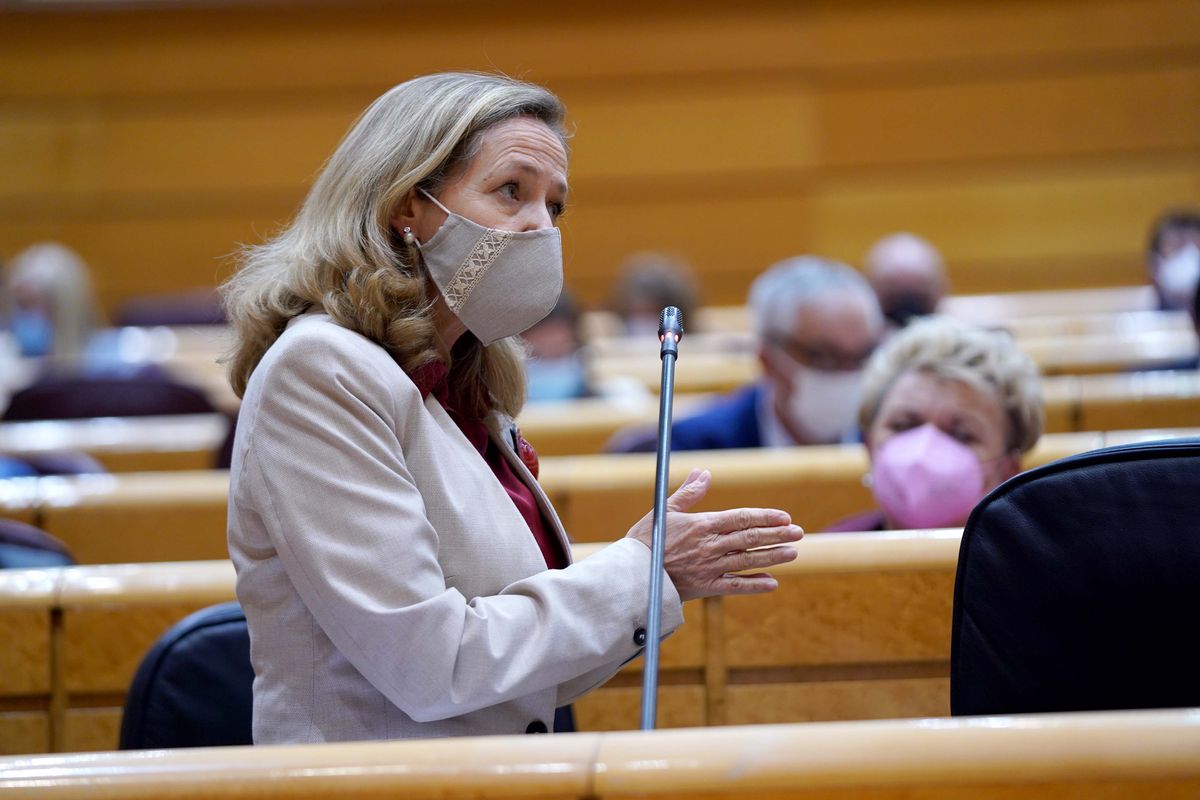Spain and France have again asked this Friday in the framework of the Eurogroup meeting for “agility” in the approval of recovery plans and that the disbursement of the first funds take place before the end of July .
Both the economic vice president of the Government, Nadia Calviño , and her French counterpart, Bruno Le Maire , consider that this is the main short-term priority for the euro zone: to approve the national plans and that the Twenty-seven ratify the own resources decision that it will allow the European Commission to borrow on the markets.
“This has to be our priority and what we all have to do is row in that direction,” Calviño reminded the rest of his colleagues, who has also downplayed the letter sent by the European Commission to Spain asking for technical clarifications on the Spanish plan because “it is probably the one that needs the least additional clarification for its completion”.
This is the first physical meeting held by the EU finance and economy ministers since the informal meeting held in Berlin in September last year.
A sign “of change” , according to the minister, which confirms the entry into a new phase of recovery in which Spain will be one of the countries with the most intense growth forecast and “one of the growth engines of the euro zone starting this year ”.
His balance is that “the correct measures” have been taken to protect the productive fabric, guarantee financial stability and employment and that thanks to the battery of coordinated measures adopted at the European level, Spain can recover the levels of pre-pandemic growth “in less than three years ”compared to the more than 10 it took to get out of the financial crisis.
Support measures
Despite this positive message, the Eurogroup has once again sent a signal of caution on the withdrawal of measures to support the economy. “The recovery is taking hold but the challenges remain great and the risk of damage from the pandemic in our societies remains very real, so much remains to be done,” summarized its president, Paschal Donohoe .
“We have to be very careful not to withdraw support from our workers and companies too quickly. It will be essential to carefully allocate the transition towards more selective support measures ”, added the Commissioner for Economic Affairs, Paolo Gentiloni , who will present a proposal on the fiscal guidelines for 2022 on June 2.
The meeting in Lisbon was also attended by the president of the European Central Bank, Christine Lagarde , who has warned that measures to support the economy will continue to be necessary in the coming months due to the many uncertainties that still surround a recovery that is taking place. he sees “uncertain” and that it will be “uneven” between countries and sectors.
In this sense, it has considered it “premature and unnecessary” to start discussing the possibility of reducing the emergency purchasing program (PEPP) launched by the pandemic and which will continue until March 2022.
“We believe that, given the uncertainty we face and the divergences that we will see, coordinated policies will continue to be necessary in the coming months to ensure that the recovery is on track,” he explained. Lagarde also pointed out that the increase in the Inflation that is occurring in 2021 is temporary in nature and that in 2022 the level will fall again to lower levels.



 Bitcoin
Bitcoin  Ethereum
Ethereum  Tether
Tether  XRP
XRP  Solana
Solana  USDC
USDC  TRON
TRON  Cardano
Cardano  Lido Staked Ether
Lido Staked Ether  Avalanche
Avalanche  Toncoin
Toncoin